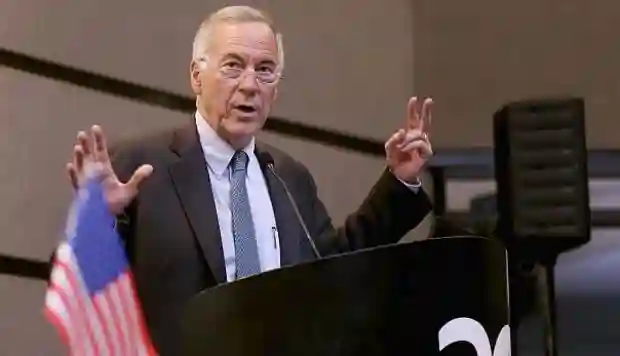According to American economist Professor Steve Hanke, Zimbabwe is currently facing its third hyperinflation in 15 years due to a recent increase in the inflation rate in the southern African country.
Hanke’s Inflation Roundup, which compiles his “accurate and up-to-date inflation measurements”, ranks Zimbabwe in first place this week. He said:
On June 22, I measured Zim’s inflation at 1298%/yr, over 15x ZimStat’s official (read: phony) inflation rate of 86.5%/yr. Zimbabwe is experiencing its third hyperinflation in 15 years.
Zimbabwe is facing significant economic challenges due to rising inflation, leading to a decline in the value of its currency and difficulties accessing basic necessities such as food and healthcare.
The government has implemented measures to address these issues, but inflation continues to rise. In June, annual inflation more than doubled from 86.5% to 175.5%, with food inflation rising by 104%.
The upcoming elections in August have put a spotlight on the economy, which is considered the biggest challenge to the ruling party’s reelection. Economist Steve Hanke predicts that the high inflation rate may hinder President Emmerson Mnangagwa’s chances of retaining power. He added:
Mnangagwa and the Zanu-PF party are doing everything in their power to rig the election.
Zimbabwe goes to the polls on August 23 to elect a new president, senators, members of Parliament (MPs) and councillors.
The southern African nation previously recorded inflation in 2008 and 2020. In 2008 Zimbabwe experienced one of the worst cases of hyperinflation ever, with estimated annual inflation at one point of 500 billion percent, according to the International Monetary Fund (IMF).
Hyperinflation is a severe economic condition characterised by rapid and uncontrollable increases in prices by at least 50% or more per month. In Zimbabwe, although hyperinflation is present in the local currency, prices have not risen significantly in US dollars.
The Government uses Blended inflation, a method of measuring inflation that considers both foreign and domestic currencies in circulation. However, this method can mask the impact of inflation on specific sectors of the economy, leading to controversy. Former Finance Minister Tendai Biti last month challenged the current Minister Mthuli Ncube to explain the use of blended inflation, calling it “pure, undiluted heresy.” He argued:
In economics, inflation is a measurement of the rise in prices and only one currency is used, whether USD or RTGS or local currency, and you cannot mix currencies.
Biti said Ncube should appear before the esteemed House to provide a detailed explanation on the origin of the currency mixing that comprises RTGS and US dollars.

